Last weekend, I went on a trip to the Contra Costa county, to the east of the Bay Area. Run by the Rotary club, the trip was designed to give international students a taste of country life in California, and how Americans who didn't dwell in the more urban areas made their lives. The day included visits to a nursery, a farm, a ranch, an olive oil plantation, and a historic preserved ranch.
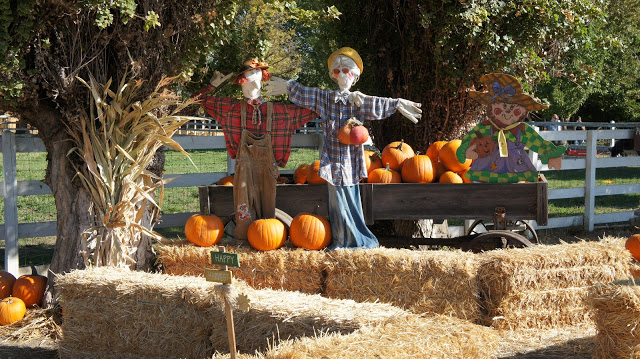
The country areas of northern California are very similar to my home town in the Upper Hunter Valley of New South Wales, Australia. I found many of the sights familiar - the greenhouses of the nursery, the cattle rails on the ranch, the vines at the winery - and the stories told to us by the local guides and hosts recalled memories of home.
The gentleman at the nursery, who was a very spritely 80 years old, told us how he had built it from the ground up, refusing to borrow money from the local bank to do so. He showed us the 3 feet deep lake they had built to collect water run-off from the greenhouse roofs, storing it for the drier months. He talked at length about the business of running the nursery, trying to match the gestation and nurturing of seedlings against potential demand, dealing with regulations for pesticide and chemical use, and the inversely proportional relationship between the amount of people required to run the nursery against the amount of technology utilised. He struck me as a genuine American businessman of yesteryear, of the kind who built his own fiefdom from scratch.
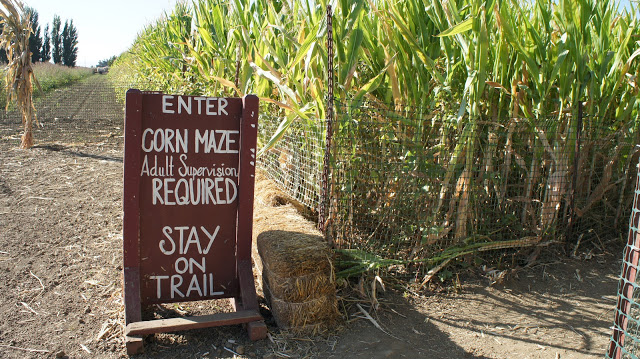
The family farm that we visited next was a strange affair. Since it's coming up to Halloween, there were pumpkins everywhere. We briefly sat in on a hilly-billy children's entertainer, before escaping that barn and wandering through herb gardens, a reconstructed Native American village, a corn maze (where we picked corn against the rules, don't tell!), and piles of pumpkins. We were even allowed to pick a pumpkin to take with us.
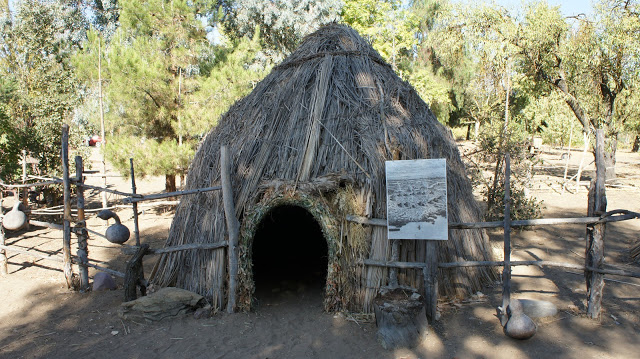
Next followed a stop at an olive oil plantation. Here we were treated to an explanation of how olive oil is produced, with several surprising anecdotes. It turns out that smaller, green olives produce more oil by weight than larger olives. "Extra virgin" olive oil is simply oil that is produced from the first pressing of a set of olives; "pure" olive oil and "pomace" olive oil come from additional pressings that are usually heat or chemical assisted to extract those last drops of oil from the olives. Here we were able to sample many delicious oils (my favourite was probably a lemon olive oil mix), as well as tasty spinach dips and salsas.
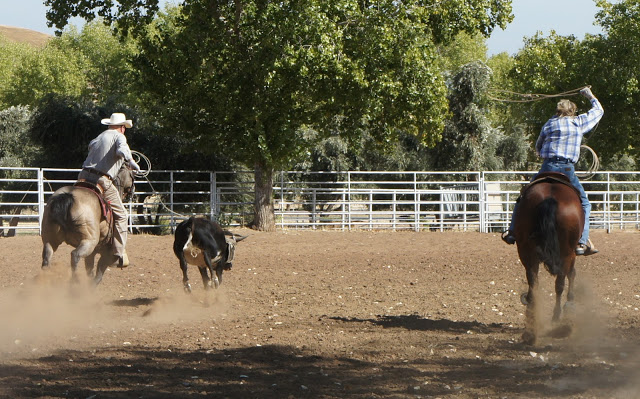
Now running quite late, we paid visit to a cattle ranch, hosted by a real American cowboy (who had an impressive wall of photographs with many famous Americans, include Ronald Reagan!). Here I learnt the distinction between grain-fed steak and grass-fed steak: grain-fed steak is more expensive, and features "marbles" of fat running through the meat that contribute to flavour. I also learnt that there are actually many cattle on the Hawaiian islands, but Hawaii itself cannot produce grain for the higher-quality steak demanded in the resorts. So cattle is shipped by sea to California for the winter, where they graze first on grass, and then on grain before being shipped back to Hawaii for consumption. We were treated to a demonstration of cattle ropin', spinning lasso and all, where the cowboy chased down and hooked the horns and feet of a young steer. Impressive stuff.
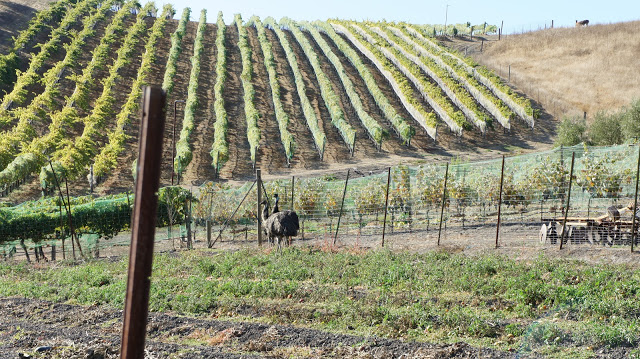
Our penultimate stop was at a small boutique winery that specialised in exotic blends. We tasted red and white blends, and were taught some of the nuances of wine tasting, including the aroma, the taste, and the aftertaste. Funnily enough, this location included some emus that lived alongside the goats in a paddock beside the vines. I didn't get a chance to ask our host where they had come from, as these are animals that are distinctly native to Australia, and are rather unexpected guests on a farm in California.
Finally, we arrived for a dinner BBQ at the Old Borges Ranch, which is a preserved example of an old American ranch prior to the second World War. Featuring a blacksmith, windmill, water well, and a stunningly old-style American home, the ranch gave us a great insight into country living over half a century ago. As the sun went down, we were treated to dinner with Rotarians and their families. It was a fitting end to a fun day.
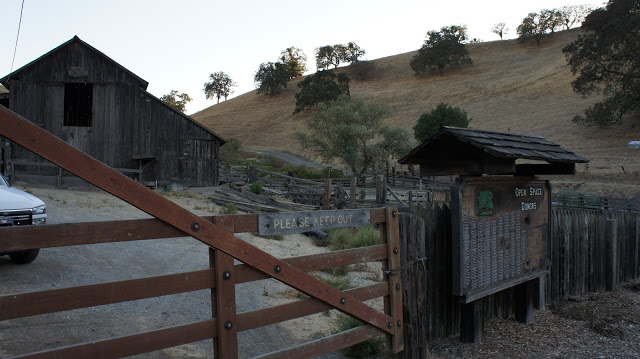
It was a long, long trip, beginning at 8am and ending past 7:30pm. But it was comforting seeing just how similar country California was to my own home area. I've always felt that the US is the great precursor for Australia, the country that is most like us in terms of cultural makeup and development. Seeing these sights only reinforced that notion further. I wonder sometimes if the American experience serves as a kind of blueprint for what might come to pass for Australia.